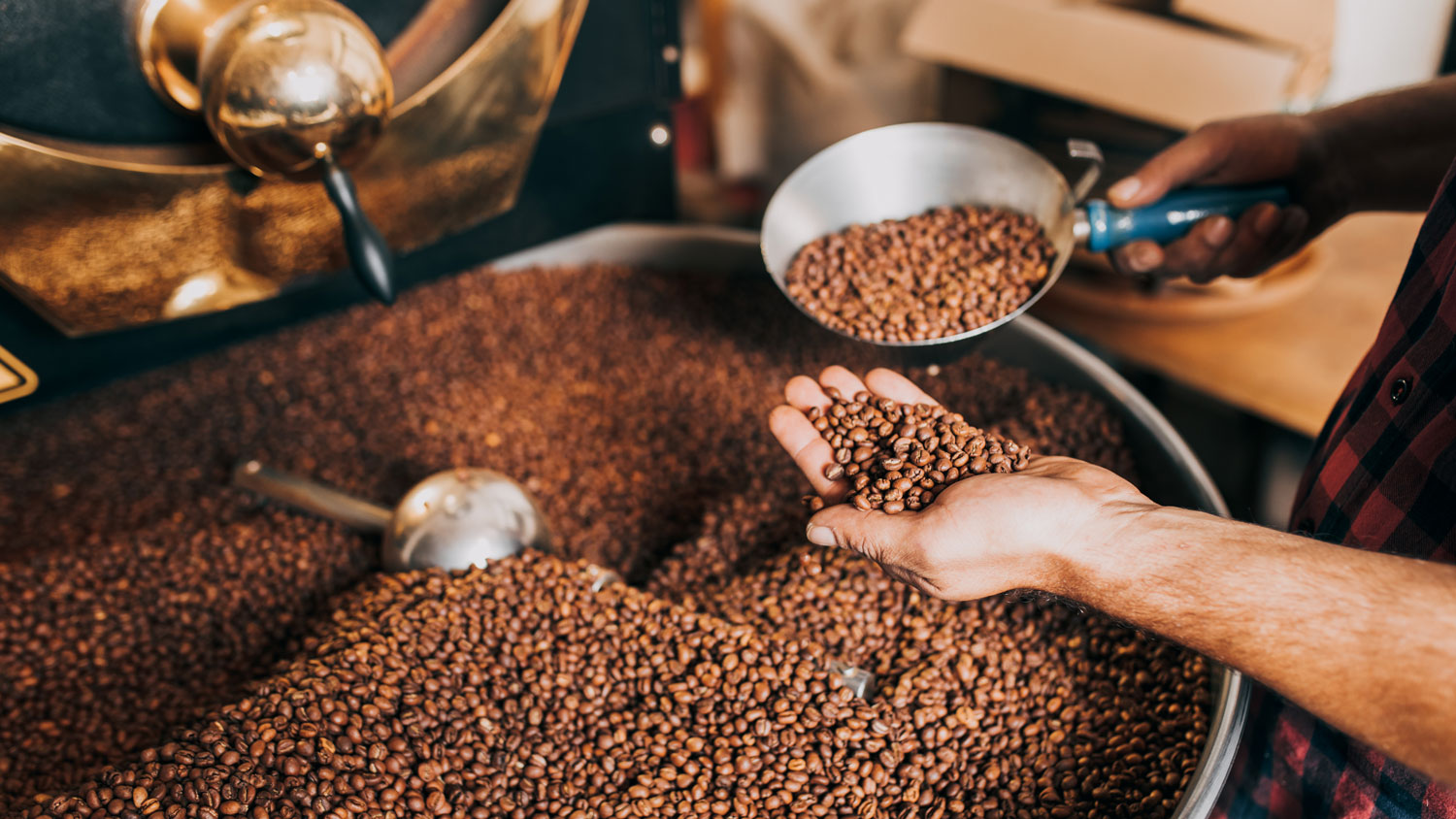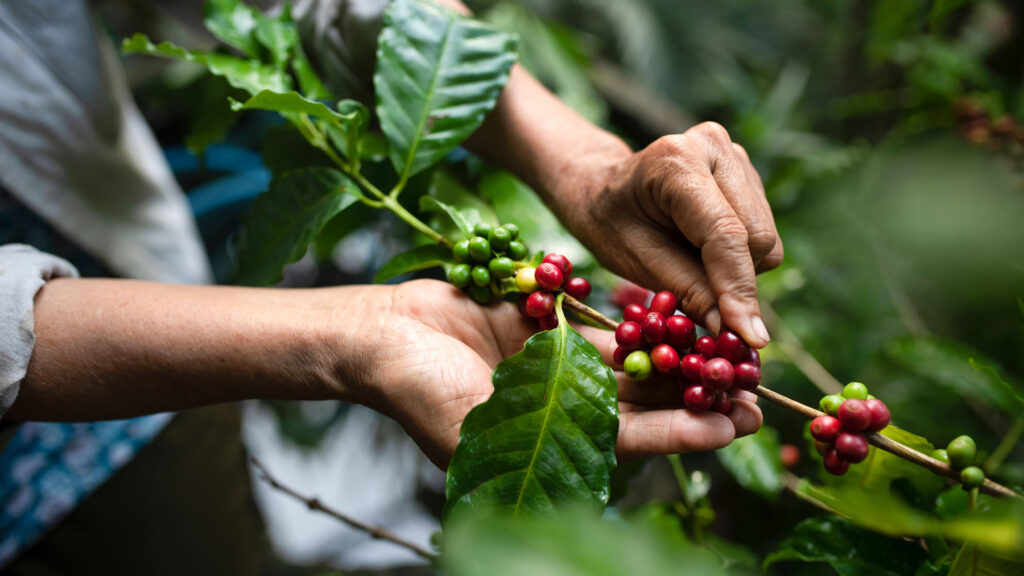As one of the most well-known drinks in the world, coffee is enjoyed by millions in many different ways. From espresso shots to cappuccinos and lattes, it has become a daily ritual for many. While coffee is popular, the history of coffee might not be so well-known. Answering questions such as “Where did coffee originate?”, “When was coffee invented?” and “Who invented coffee?” help trace the fascinating history of our favorite drink, which can shed light on how it evolved from a simple bean to the global phenomenon it has become today. Let’s dig into coffee’s roots and the centuries-old traditions surrounding this drink.
The Origins of Coffee
So, where did coffee originate? Many people consider Ethiopia to be the epicenter of where coffee came from. According to legend, coffee was discovered by a young goat herder named Kaldi. After his goats started acting energized after eating some red berries off a tree, he decided to try the berries himself and experienced a burst of energy. This humble beginning has led to the discovery of the coffee bean.
The use of the coffee bean quickly spread across ancient Ethiopia as coffee cherries were used by local tribes for various purposes, including mixing the beans with animal fat to create an energy-boosting snack. This beginning of coffee’s journey marked its use not only as a stimulant but also as a part of cultural rituals and practices. Kaldi and the tribes’ many uses of coffee remain an integral part of Ethiopia’s rich history of coffee.
The Spread of Coffee Across the World
As the word quickly spread about coffee, it’s thought to have spread across the Red Sea into Yemen in the 15th century and eventually the Arabian Peninsula, where it quickly became an integral part of Middle Eastern culture. By the 16th century, it had reached the Ottoman Empire, gaining even more popularity.
Eventually, coffee made its way to Europe and rapidly expanded to countries like Italy, France, and England. Initially introduced through trade routes, the first coffeehouse was opened in Venice in 1645. Soon after, coffeehouses became integral places in England and France as they became gathering spots for writers, artists, and philosophers. The coffeehouse scene contributed to the drink’s growing popularity while transforming coffee from an exotic drink to a part of everyday life.
Coffee in the Americas
Of course, coffee quickly spread across the ocean to the New World in the early 18th century, with significant plantations emerging in the Caribbean, Central America, and South America. Brazil quickly dominated coffee production, becoming the world’s largest producer by the 19th century. Colonial practices heavily influenced coffee cultivation, relying on enslaved labor to cultivate and harvest the beans. The Industrial Revolution in the 18th and 19th centuries further fueled mass consumption with the advent of faster transportation, urbanization, and the rise of factories. Coffee became more accessible to the working class, turning coffee into a key commodity.
Who Invented Coffee and When Was it Invented?
While using coffee beans in various forms was invented in Ethiopia in the 9th century, it is thought that the Sufi monks in Yemen discovered transforming the beans from raw coffee cherries into the practice of brewing the beans into a beverage during the 15th century. This caffeinated brew helped them stay awake during their nighttime devotions. In the 16th century, coffee became a standard beverage in the Arabian Peninsula, particularly in Mecca, where it became popular amongst traders and pilgrims.
The Modern Coffee Industry
The development of coffee has come a long way since its early days. Farming methods, processing, and roasting advancements have played a key role in its global spread. As coffee production grew, so did the focus on quality. This led to the rise of specialty coffee in the late 20th century. Coffee was elevated to a craft beverage during the third-wave movement, emphasizing high-quality beans, ethical sourcing, and artisanal production. Not only did this transformation allow for a broader range of flavors, but it also transformed coffee culture, making it an exciting and dynamic experience for coffee enthusiasts worldwide.
Cultural Significance of Coffee Today
Coffee is a favorite beverage and plays a vital role in daily life across many different cultures. From coffee ceremonies in Ethiopia to the bustline cafés in Europe, coffee is a unifying factor in connecting people, fostering conversation, and building community. In addition, the global coffee trade has a profound economic and social impact, providing livelihoods for farmers, laborers, and workers in many locations worldwide. While the coffee industry has grown, so has the awareness of its environmental and ethical challenges. Sustainability and ethical sourcing have become key considerations focusing on fair trade practices, organic farming, and environmentally friendly production methods. Many consumers seek coffee that supports farmers and the planet, ensuring that it remains a socially and ecologically responsible part of the future.
Savoring the Rich History of Coffee
From its humble beginnings in Ethiopia to becoming a worldwide global staple, coffee has evolved into a beverage enjoyed by millions. This ongoing evolution inspires coffee enthusiasts with its many innovations in cultivation, brewing methods, and specialty coffee trends. Are you ready to experience the history of coffee firsthand? Stop by Cupla Coffee and explore our diverse menu. Immerse yourself in the rich, flavorful journey that coffee has taken across the globe. We have locations in Salt Lake City, Park City, and Cottonwood Heights. Come see us today!




